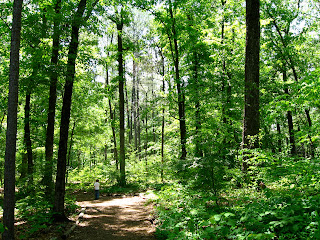I honestly think that this is one of the first songs that made me realize the doctrinal depth that can be contained in hymn lyrics. I think that what may have happened is that I was reading I Corinthians sometime around Christmas, and thus the words "Second Adam from above, reinstate us in Thy love," grabbed my attention and caused me to focus on the rest of the lyrics.
The hymnal I grew up with had, like any hymnal, its shortcomings and idiosyncrasies (like listing Franz Josesph Haydn as Francis J. Haydn because we were apparently still uncomfortable with German names in 1957, I guess). But I must give credit where due. When it came to choosing which of Wesley's lyrics to include in the hymnal, the editor picked some great ones, and some that I don't know that I've really seen in hymnals of other churches I've attended since.
Here's the set I grew up with:
Hark! The herald angels sing,
“Glory to the newborn King;
Peace on earth, and mercy mild,
God and sinners reconciled!”
Joyful, all ye nations rise,
Join the triumph of the skies;
With th’angelic hosts proclaim,
“Christ is born in Bethlehem!”
Christ, by highest Heav’n adored;
Christ the everlasting Lord;
Late in time, behold Him come,
Offspring of a virgin’s womb.
Veiled in flesh the Godhead see;
Hail th’incarnate Deity,
Pleased as man with men to dwell,
Jesus our Emmanuel.
Hail the heav’n born Prince of Peace!
Hail the Sun of Righteousness!
Light and life to all He brings,
Ris’n with healing in His wings.
Mild He lays His glory by,
Born that man no more may die.
Born to raise the sons of earth,
Born to give them second birth.
Come, Desire of nations, come,
Fix in us Thy humble home;
Rise, the woman’s conqu’ring Seed,
Bruise in us the serpent’s head.
Adam’s likeness, Lord, efface,
Stamp Thine image in its place:
Second Adam from above,
Reinstate us in Thy love.
I see so many points of doctrine raised in these lines. What a statement of the Lord's incarnation, its reasons, its results! The lyrics to this hymn are very easily rearranged and other configurations work well, but early exposure affects us, and I'm most satisfied when all these lyrics are included. I invite you to read through and discover for yourself, if you haven't previously, all Wesley's scriptural allusions laces throughout the hymn. Then raise your voice and join the triumph of the skies!



